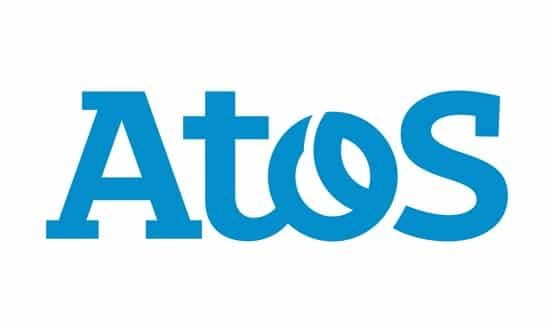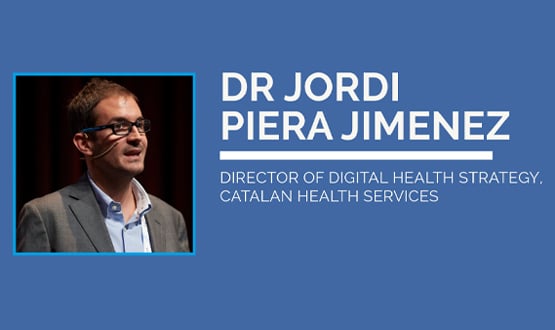Ewan Davis: time to be brave, minister
- 28 November 2016

I’m writing this on holiday in Udaipur, in Northern India. My wife is across the famous lake, painting; and I find myself in the ideal environment to reflect.
Looking at the challenges facing the NHS, I remain convinced that digital technology has a key role to play. It must underpin the transformation that can play a significant role in managing spiralling demand for health and social care and the costs that go with it.
Yet, I wonder if I’m wasting my time. That’s partly because the current NHS digital strategy lacks ambition. It seems to me that it has little chance of achieving the radical transformation that will make a real difference.
But it’s also because of the cuts in total health and social care expenditure. As we continue to reduce our spending on health and social care in comparison to similar economies, we create a backdrop against which even my wildest fantasies of the benefits of a digital transformation look unlikely to stem the tide.
The reality of NHS funding
Politicians have succeeded in presenting an image to the electorate of NHS funding that is “protected”. Whereas, in reality, total expenditure on healthcare has been squeezed.
From a peak in 2009, when we spent nearly 10% of GDP of healthcare, we are now down to less than 9%. Our healthcare spending also compares badly with comparable nations including France and Germany, which spend around 11% of GDP.
Politicians have also managed to present the NHS as poorly performing. If I ask my friends from outside of healthcare where they think the NHS rates compared to comparable systems they are typically amazed to learn that we are at the top of most rankings.
Indeed, in the most recent ranking by the well respected Commonwealth Fund the NHS ranks number one; while the US system (which spends over 16% of GDP on healthcare) comes in at number 11.
Anyone who works in or with the NHS knows there are opportunities for savings through more efficient processes and redesigned care pathways. But given that we are already the most cost efficient of any major healthcare system in the developed world, it seems unlikely that these savings are going to be easily won.
They certainly won’t be won by doing what we currently do a bit better (we have already been successful at squeezing out these efficiencies). If we are going to achieve the next level of efficiency improvements, we have to radical redesign the processes of care, and this is where digital is so important.
However, as Professor Robert Wachter pointed out in his recent review for the NHS there is an “efficiency paradox” which means successful digital transformation requires two things that politicians seem unwilling to give the NHS; time and money.
Digital unambitions
Against this background, I’m not surprised that our digital leaders (those have not decided to retire) are taking the unambitious route they are taking. I guess that in their position I’d do the same.
That their approach will fail to deliver radical change through digital transformation is certain. But investing money in doing what we have always done, with those who are most likely to succeed, will buy some time.
It will also, probably, deliver some sound-bites and photo opportunities. That will allow our politicians to give the electorate the false impression that they are actually doing something to seize the massive opportunity that digital offers to health and social care.
It will probably come as no surprise to my readers that I think what they ought to do is to make some modest investment in open digital platforms, a disruptive technology that will unlock innovation in ways we can’t imagine.
I laid out the vision for an Open Digital Platform Innovation Challenge Fund with my colleague Dr Tony Shannon in a recent piece for Digital Health – 'Beyond Wachter: 1% for the 99%' – and I won’t repeat all of our arguments here.
Suffice it to say that, with a predicted saving in total healthcare costs in excess of 11% and the evidence of the transformative effect of platforms in other sectors, it would seem insane not to make such a modest investment.
Brave, Prime Minister
While I have been in India, I have witnessed a brave attempt to trigger a digital transformation, in this case in an effort to eliminate corruption and undermine the black economy.
Prime Minister Narendra Modi’s action has involved declaring that 86% of the currency in circulation is no longer legal tender.
While it’s made my holiday more “exciting” I have admire such a bold action; one that takes on the rich and powerful and aims to create a digital revolution in an economy which, even for large transactions, has hitherto been primarily cash- based.
Healthcare systems that don’t embrace the potential of digital have little chance of addressing the challenges that all developed healthcare systems face.
Politicians who don’t want to preside over further disintegration of the NHS and the inevitable electoral consequences need take a leaf out of Mr Modi’s book; be brave. Also, give the NHS the time and the money it needs to achieve a digital transformation.
About the author: Ewan Davis is a digital health strategist at Woodcote Consulting, with 35 years experience in digital health. He was once chair of the Primary Health Care Group of the BCS, has twice been chair of the trade association that is now techUK, and is a founder of HANDI – a not for profit venture that aims to promote openness and collaboration and which developed the Code4Health Platform for NHS England.
Ewan is also director of two open source ventures, OpenHealthHub CIC and Synapta CIC, and an erstwhile consultant to the rich and famous and NHS England. He wants to see an open digital ecosystem for health and social care before he dies; and believes that if we create one he might live longer. Follow him: @WoodcoteEwan




